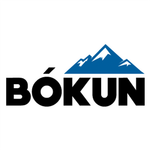Description

DXchange

TourCMS
Comprehensive Overview: DXchange vs TourCMS
Overview of DXchange and TourCMS
a) Primary Functions and Target Markets
DXchange
Primary Functions:
DXchange is a platform designed to facilitate digital transactions and streamline data exchanges between different systems, typically in complex business environments. It provides integration solutions that help companies manage their internal and external data flows more efficiently. Functions often include data transformation, secure data sharing, transaction automation, and integration with various business applications and platforms.
Target Markets:
DXchange primarily targets businesses that require robust data integration solutions. This includes industries like finance, healthcare, logistics, and manufacturing where data exchange is critical. Its target audience is usually larger enterprises that operate with complex IT infrastructures and need seamless connectivity across diverse systems.
TourCMS
Primary Functions:
TourCMS is a software designed specifically for the tourism and travel industry. It functions as a reservation and content management system that helps tour operators, travel agencies, and other travel providers streamline their booking processes, manage customer relationships, and market their services. Key features include reservations management, channel management, CRM capabilities, and marketing tools.
Target Markets:
TourCMS primarily targets small to medium-sized businesses within the travel and tourism sector. These include tour operators, travel agencies, and activity providers who require a comprehensive solution for managing their operations and improving customer engagement.
b) Market Share and User Base
DXchange
Due to the specialized nature of integration platforms like DXchange, concrete market share data can be elusive. However, DXchange serves a niche market of industries requiring high-level data integration. Its user base tends to include enterprises with complex infrastructure, so while it may not have as wide a user base as more generalized software solutions, it’s critical within its specialized sector.
TourCMS
TourCMS, being a product catered to a specific sector, also commands a niche but important role in the tourism and travel markets. Its traction is primarily among smaller and medium-sized enterprises in the travel industry, where there’s a significant need for affordable and effective reservations and booking management systems. Its user base may be larger in sheer numbers compared to DXchange, given the broader applicability in the travel and tourism industry.
c) Key Differentiating Factors
-
Industry Focus: The primary differentiation lies in industry focus. DXchange serves multiple industries requiring data exchange and integration, while TourCMS caters specifically to the travel and tourism sector.
-
Functionality and Features: DXchange offers features centered around data integration and transaction management. In contrast, TourCMS provides functionalities specifically aimed at reservation management and customer interaction in travel services.
-
Complexity and Customization: DXchange solutions can be complex, often requiring customization to fit into an organization’s existing systems, which makes it appealing to larger enterprises with specific needs. TourCMS, on the other hand, is typically out-of-the-box with configurations that suit smaller to medium travel operations.
-
Market Approach: DXchange focuses on establishing robust, secure data channels across different applications, which is critical for its clients. TourCMS emphasizes ease of reservations, bookings, and managing customer relationships, focusing more on operational excellence in the travel sphere.
In conclusion, while both platforms serve to enhance business operations, they do so in vastly different contexts—one streamlining data exchange for a range of industries, the other optimizing travel-related operations. Their contrasting industry focuses, functionalities, and deployment scopes define their unique positions in their respective markets.
Contact Info

Year founded :
Not Available
Not Available
Not Available
South Africa
http://www.linkedin.com/company/dxchange

Year founded :
2003
+44 845 130 3917
Not Available
Switzerland
http://www.linkedin.com/company/tourcms
Feature Similarity Breakdown: DXchange, TourCMS
When comparing DXchange and TourCMS, both of which are platforms in the travel and tourism sector, it's essential to examine their core features, user interfaces, and any unique aspects that differentiate them. Here is a feature similarity breakdown:
a) Core Features in Common
Both DXchange and TourCMS offer several core features that are common in travel and tourism management platforms, such as:
-
Inventory Management: Both platforms allow tour operators to manage their inventory, including tours, accommodations, and activities.
-
Booking Management: They offer tools to process and manage bookings, including reservations, cancellations, and modifications.
-
Channel Management: Both systems integrate with various third-party booking platforms and OTAs (Online Travel Agencies) to maximize reach and sales.
-
Pricing and Availability: Dynamic pricing models and availability tracking are provided to help manage and optimize revenue.
-
Reporting and Analytics: Both platforms offer analytics tools to track sales, occupancy rates, and other performance metrics.
-
Customer Management: Features to store and manage customer information, including history and preferences, are included.
-
API Access: They provide API access enabling integration with other systems or custom development.
b) Comparison of User Interfaces
The user interfaces for DXchange and TourCMS tend to vary based on the design philosophy and target users of each platform:
-
DXchange: Known for its user-friendly interface, designed to be intuitive with drag-and-drop functionalities and easily navigable menus. It's suitable for both tech-savvy users and those who may not be as familiar with digital tools.
-
TourCMS: TourCMS has a straightforward, no-frills interface that focuses on functionality. While it may appear less modern compared to other platforms, it is designed with a focus on efficiency and providing access to needed features with minimal clicks. Customization might be limited compared to more modern platforms.
c) Unique Features
Each platform offers unique features that can serve as differentiators:
-
DXchange:
- Customizable Workflow Automation: Allows operators to set up and automate specific workflows tailored to their business processes, streamlining operations.
- AI-Powered Recommendations: Offers advanced analytics and AI features to provide personalized recommendations for tours and packages.
-
TourCMS:
- Multi-Currency Support: Provides robust support for handling transactions in multiple currencies, which is particularly beneficial for global operators.
- Comprehensive XML API: TourCMS is known for its strong XML API, providing advanced integration capabilities for custom setups and third-party software connections.
- Partnership Network: Extensive network and support for partnerships with suppliers and resellers, enhancing distribution opportunities.
In conclusion, while DXchange and TourCMS share many core features necessary for travel management, they differ in UI design and specific capabilities that cater to certain business needs or operational preferences. Choosing between them would depend on a company’s specific requirements, such as interface preferences, need for automation, or advanced API functionalities.
Features

User Management
Customer Support
Analytics and Reporting
Data Integration

Customer Relationship Management (CRM)
Online Booking Management
Inventory Management
Reporting and Analytics
Marketing Tools
Best Fit Use Cases: DXchange, TourCMS
DXchange and TourCMS are both specialized platforms that serve different needs, catering to specific business types and scenarios. Here’s a breakdown of the best fit use cases for each:
DXchange
a) Types of Businesses or Projects
DXchange is ideal for businesses that require robust data integration solutions. The platform is best suited for:
- Enterprises with complex data needs: Companies that operate with diverse systems and need to facilitate smooth data exchange across various platforms without manual intervention.
- Industries with legacy systems: Businesses that are upgrading or integrating old infrastructure with modern systems, particularly in finance, retail, and manufacturing.
- Projects requiring custom integrations: Businesses that want to create custom connections between various software platforms and databases.
- Organizations focusing on digital transformation: Companies seeking to streamline operations through enhanced data flow and integration as part of their digital transformation strategy.
d) Industry Verticals or Company Sizes
DXchange serves a wide array of industries, including financial services, healthcare, e-commerce, and logistics. It is tailored towards medium to large enterprises due to the complexity and scale of data integration requirements typical in these company sizes. Smaller companies might use it if they are technology-focused or face significant integration challenges.
TourCMS
b) Preferred Scenarios
TourCMS is a specialized tool for the travel industry, focusing on:
- Tour operators and travel agents: Businesses offering tours and packages that require sophisticated booking management and customer relationship management.
- Companies offering package holidays: Firms that need to manage complex itineraries and customer service for holiday packages.
- Startups in travel tech: New companies in the travel space that require an out-of-the-box solution for booking and managing tours efficiently.
- Travel marketplaces: Platforms looking to aggregate various tours and offers into a single system for consumer convenience.
d) Industry Verticals or Company Sizes
TourCMS is predominantly for the travel and tourism industry, providing solutions that cater to small to medium-sized businesses, such as independent tour operators and regional travel agents. Its features are designed to simplify operations, making it appealing for businesses with limited IT resources seeking efficiency improvements in tour management and booking processes.
In summary, while DXchange excels in complex data integrations suitable for larger and more diverse industries, TourCMS focuses on the travel sector, offering specialized tools for managing tour bookings and operations efficiently. Each serves different needs based on the nature of the business and industry requirements.
Pricing

Pricing Not Available

Pricing Not Available
Metrics History
Metrics History
Comparing undefined across companies
Conclusion & Final Verdict: DXchange vs TourCMS
To provide a comprehensive conclusion and final verdict for DXchange and TourCMS, let's evaluate each product based on their value, pros, cons, and recommendations for potential users.
a) Best Overall Value
The determination of the best overall value between DXchange and TourCMS largely depends on the specific needs of the user or business. Both platforms cater to slightly different aspects of the tourism and travel industry, so identifying the core requirements is crucial.
-
DXchange: Known for its integration capabilities and robust API features, DXchange is well-suited for businesses that require seamless third-party integrations and custom development. It generally fits businesses that are looking to optimize data exchange and connectivity within the travel ecosystem.
-
TourCMS: It is tailored for businesses in the tourism and activity sector, particularly tour operators. TourCMS excels in managing bookings, streamlining operations, and providing marketing solutions. It is ideal for users seeking an all-in-one solution for tour management with built-in marketing and sales tools.
Based on a general assessment, for businesses prioritizing integration and connectivity, DXchange might offer better value. However, for tour operators focused on the comprehensive management of tours and customer engagement, TourCMS could be more beneficial.
b) Pros and Cons
DXchange
-
Pros:
- Excellent integration capabilities with numerous third-party applications.
- Strong API support, offering customization and flexibility in data handling.
- Facilitates streamlined communication between diverse platforms within the travel industry.
-
Cons:
- May require technical expertise for setup and maintenance.
- Could be perceived as complex for users unfamiliar with API-based systems.
- Focuses more on backend functionality which might not suit users looking for front-end solutions.
TourCMS
-
Pros:
- Comprehensive booking management system tailored for tour operators.
- User-friendly interface with marketing tools to enhance customer engagement.
- Offers features specific to tour sales, such as dynamic pricing and real-time availability.
-
Cons:
- May not have as advanced API capabilities as DXchange for integration purposes.
- Primarily focused on tours, which might not be extensive enough for businesses with diverse service offerings.
- Potential limitations in customization compared to a more flexible platform like DXchange.
c) Recommendations for Users
-
Identify Core Needs: Users should start by identifying their core business needs—whether it's robust data integration or comprehensive tour management. This would guide them towards choosing the product that aligns best with their operational priorities.
-
Technical Requirements: Consider the level of technical expertise available within your team. DXchange might require more technical handling, which is important for seamless implementation.
-
Scalability and Customization: Evaluate the potential for growth and the need for customization. If integration and scalability with existing systems are priorities, DXchange might be the better choice. On the other hand, if the focus is on enhancing the tour sales process with minimal technical fuss, TourCMS could be the preferred option.
-
Trial and Support: If possible, take advantage of trial periods or demos to experience each platform first-hand. Consider the quality and availability of customer support offered by each provider.
By weighing these factors, businesses and users can make an informed choice between DXchange and TourCMS, selecting the platform that best fits their specific operational, technical, and strategic needs.
Add to compare
Add similar companies



